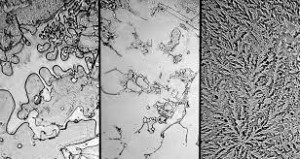 Have you had a good cry lately? Maybe shed a tear or two?
Have you had a good cry lately? Maybe shed a tear or two?
Years ago, I heard that tears have varying chemicals based on what generated the tears. Being the curious creature I am, I researched exactly what was different and why. I hope you find the information as fascinating as I did.
Tears are scientifically divided into three different types, based upon their origin. The empirical nature of tears is a chemistry of water, proteins, minerals, hormones and enzymes. It’s incredible that tears prompted by strong emotion (vs. cutting an onion or getting dust in your eye) contain protein-based hormones including the neurotransmitter leucine encephalin, a natural painkiller that is released when the body is under stress.

The credit for this insight goes to a photographer named Rose-Lynn Fisher, who during a tumultuous time in her life wondered if her tears of sadness and frustration were different than her tears of joy and happiness. This led to her study of 100 dried human tears studied through a stand light microscope, called The Topography of Tears. Her photographs of various tears are incredibly sharp and description of her insights poetic. As she says, “The random compositions I find in magnified tears often evoke a sense of place, like aerial views of emotional terrain.”
Fisher photographed and saw highly unique characteristics of tears prompted by grief, change, onions, laughing until crying, remembrance, timeless reunion, momentum, release, possibility and hope.
So what do fingerprints, snowflakes, brains and tears have in common? There are no two alike. Each are unique, just like you and me.
Leave a Reply